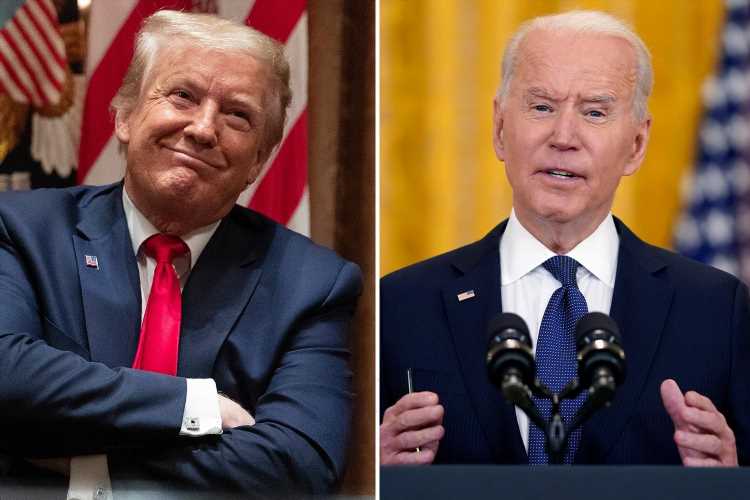PRESIDENT Joe Biden has come under fire for expanding coronavirus relief aid to include undocumented and international college students, reversing a controversial Trump-era policy.
Undocumented students and others were previously barred under Trump from receiving federal relief grants that were meant to help pay for expenses like food, housing and child care during the pandemic.
However, on Tuesday, Education Secretary Miguel Cardona finalized legislation that allows colleges to distribute $36 billion in federal relief to all students, regardless of their immigration status.
“The pandemic didn’t discriminate which students got Covid, so the final rule does allow for all students," Cardona told reporters while unveiling the policy change.
He added that the goal of the measure is to "make sure that all students have an opportunity to have access to the funds to help them get back on track.”
The tens of billions in federal relief will be distributed as part of the $1.9 trillion America Rescue Plan that Biden signed into law back in March.
Sen. Patty Murray of Washington state, who chairs the Senate's Health, Education, Labor and Pensions Committee, praised the announcement and said he was "so relieved by the decision."
"It shouldn't matter if you are undocumented or a DACA recipient—every student struggling because of this pandemic deserves access to emergency aid that can make all the difference," Murray said
However, not everyone praised Cardona's revision, with some accusing Biden of "fueling" the immigration crisis.
Rep. Virginia Foxx, the top Republican on the House Education Committee, called the move “an insult to every American.”
“President Biden is fueling an immigration crisis, and this final rule exacerbates the emergency at the southern border,” Foxx said in a statement.
“I call on elected Democrats to stop swindling law-abiding citizens, put Americans first, and respect the sacrifice of hardworking taxpayers.”
Under Cardona's revisal, colleges and universities will each receive an allocation of the funding under a formula spelled out in that law.
Under the terms, officials for the schools must pass along roughly half of their Covid-19 relief funds directly to all students in the form of emergency financial aid cash grants.
The new guidance supersedes rules put in place in April and June 2020 by Trump's then-Education Secretary Betsy DeVos.
Those rules restricted pandemic assistance to only students who were eligible for federal financial aid under the Higher Education Act of 1965.
That rule excluded undocumented students and international students, as well as some US citizens who do not qualify for federal financial aid – such as those who have a defaulted student loan or a drug conviction.
Under the first coronavirus relief bill, the CARES Act signed into law in March 2020, Congress allocated $12.5 billion to establish the Higher Education Emergency Relief Fund.
The two other bills that followed, passed in December 2020 and March 2021, authorized an additional $62.3 billion in funding, particularly for students with "exceptional need."
DeVos' restrictions on the coronavirus college aid garnered a number of lawsuits and provoked outrage from Democratic lawmakers.
Colleges and universities themselves were also largely opposed to the restrictions, with critics saying the complicated criteria actually slowed down school official's ability to get the cash to eligible students.
But Cardona said the new regulations deem all students eligible, meaning it will be "easier for colleges to administer the program and get money in the hands of students sooner."
Colleges will be permitted to distribute the funds how they see fit, though the law requires them to first prioritize students who have exceptional needs.
New guidance was also released by the Department of Education on Tuesday that expands how schools can spend the funds.
Schools were already allowed to use the funding to defray a wide range of expenses related to the pandemic, such as technology upgrades, lost revenue and PPE equipment.
But under the new terms, colleges can also use the cash to boost vaccination efforts on campus, including by setting up new inoculation sites or establishing campaigns to spread awareness.
Colleges can also use the funding to provide paid time off for staff to get vaccinated.
Additionally, the White House said schools must use some of their funds to inform financial aid applicants that they may be eligible for more aid should they or a family member become unemployed.
"It is really designed primarily to support institutions and their students, and efforts to retain those students and support them as they move through the pandemic, and to reengage students to help them stay connected to the campus community," Michelle Asha Cooper, acting assistant secretary of postsecondary education, told Politico.
Source: Read Full Article






